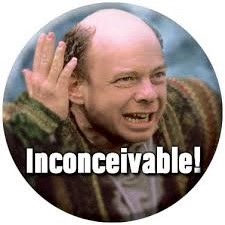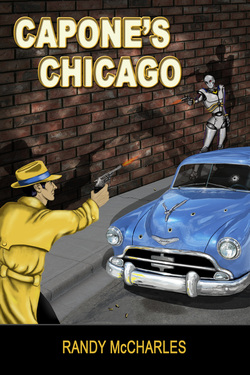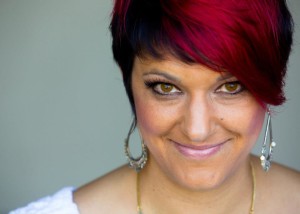I’ve written before on this blog about my experience attending conventions and seminars, but today I want to revisit that subject and take a different perspective. My previous posts have been about professionalism, about making contacts, meeting editors, etc. Today I want to look at the convention experience from the perspective of a fan.
Everyone who writes genre fiction is also a genre fiction fan. This is perhaps obvious! Last spring, the Fictorians devoted a whole month to discussing various bloggers’ inspirations for being a writer, and not surprisingly a large number of those posts ended up being about genre books, movies, and television shows. People who are caught up in the genre milieu are often the same ones who later become the most prodigious content creators.
Certainly some conventions are more for fans than they are for writers and other content creators (as Randy McCharles discussed here just a few days ago). The most recent con I went to was World Fantasy, which going by McCharles’ metrics is probably 95–100% craft, with just a fringe of commercial around the edges. This is a convention for writers to mingle with other writers. The number of con-goers is capped, so it never felt crowded; in fact, as I wandered the hotel hallways and worked my way from one panel to another I found myself coming upon the same faces over and over again. This is kind of wonderful, because you start to make friends and contacts almost without trying.
And some of those faces? They be famous faces.
WFC is a convention for writers, not hordes of screaming fans in Chewbacca costumes (not that there’s anything wrong with that), but as I mentioned earlier, the writers are fans, too. And as someone who wasn’t accustomed to sharing a table with the people who wrote the books I grew up with? Well, this was heaven.
If someone told me I’d sit across a table listening to L.E. Modesitt Jr. wax eloquent about the time he and his friend constructed a makeshift bomb as children and blew a hole in their family’s shed, I’d have told them to bugger off. I chatted on several occasions with Guy Gavriel Kay (and one of my friends who shall remain nameless—never mind, it’s this one—may or may not have stolen his swag bag of books after the con was over). In a very brief exchange, I met Robert J. Sawyer, with whom I later had the pleasure of becoming much more closely acquainted when he visited my city. I also got to meet two of my favorite writers of all time, the husband-and-wife duo of Gar and Judith Reeves-Stevens. I had been sitting just one row behind them during one of the panels; I have no idea what the panel was about, because I spent the whole time staring at the back of their heads like a serial killer. Fortunately, I kept it together when I finally approached them. They were ever so gracious to speak with me for a few minutes, even though they were obviously on their way to somewhere more important. And the crème de la crème? Me and several other Fictorian contributors had the unique opportunity to pick Brandon Sanderson’s brain in a small and exclusive two-hour Q&A session.
If I haven’t convinced you yet that cons are awesome, you’re beyond hope. Over the years since, I’ve been to a few different cons, and this experience has been mirrored several times. I’m so accustomed to meeting well-known writers now that I’ve started to view them as colleagues—much more experienced and successful colleagues, sure, but colleagues nonetheless.
I’m sure there are some authors who don’t have the time of day for their fans. I’ve heard horror stories, but I’ve never met them, which tells me they must be in the minority. Or at least, you’re less likely to bump into this kind of author at cons, because they have other places they’d rather be.
The authors I met were all polite and approachable. I never felt awkward around them. When we chatted, it wasn’t all about them; they asked me questions about myself as well. They seemed to enjoy connecting with the masses. And you know what? Meeting these authors only made me want to run home and buy as many books of theirs as I could find. The moral of the story is that being a good and decent human being is not only the right thing to do, it probably has some economic benefits as well.
So it turns out the authors whose jacket cover headshots I lovingly gazed at with hero worship as a preteen, and then as a teenager, and then as a young adult, and then embarrassingly even as a nearer-to-middle-age adult, are just people, not much different than I am. That right there infuses me with hope and optimism.
One day, if a fan ever comes up to me and wants my autograph, or even just wants to say hi, no matter how busy I am or what I’m doing, I’m going to smile in the memory of all these wonderful genre fiction luminaries who came before me and pay it forward. It’s the right thing to do.

 One and all, we are here because we love stories. We were touched at some point in our lives by the words of another and were inspired to share our own thoughts and creativity with the world. Writers are born from fans. So then, it would be absolutely, utterly inconceivable that we, as authors, would cringe at any amount of fan attention. Honestly, it depends on the person. First and foremost, writers are people, and many of us are introverts. Interacting with people isn’t easy, so many authors create a mental space that I call the “fan-zone.”
One and all, we are here because we love stories. We were touched at some point in our lives by the words of another and were inspired to share our own thoughts and creativity with the world. Writers are born from fans. So then, it would be absolutely, utterly inconceivable that we, as authors, would cringe at any amount of fan attention. Honestly, it depends on the person. First and foremost, writers are people, and many of us are introverts. Interacting with people isn’t easy, so many authors create a mental space that I call the “fan-zone.”

 Randy McCharles Bio:Randy McCharles is an award-winning author of speculative short fiction, and was included in Year’s Best Fantasy 9. In January 2014, he left his day job to write full time and focus his attention on novel length works. When not making up tall tales, Randy organizes literary events, including chairing the
Randy McCharles Bio:Randy McCharles is an award-winning author of speculative short fiction, and was included in Year’s Best Fantasy 9. In January 2014, he left his day job to write full time and focus his attention on novel length works. When not making up tall tales, Randy organizes literary events, including chairing the 